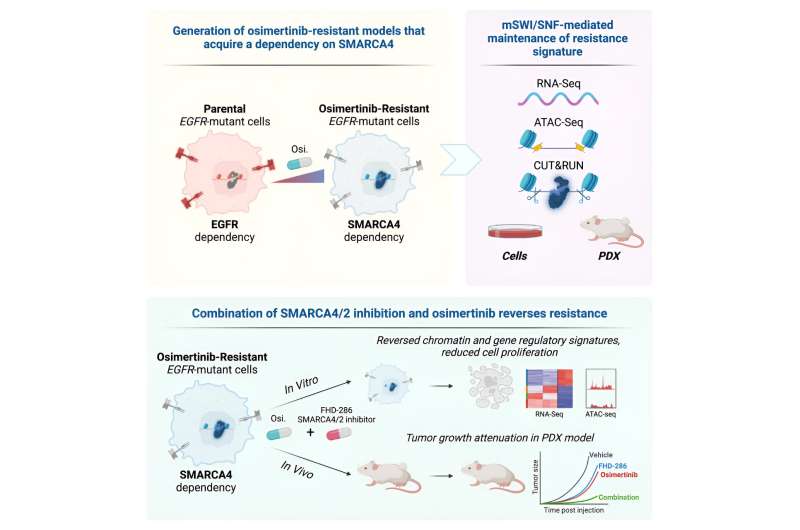
When lung cancers driven by mutations in the EGFR gene become resistant to osimertinib or other targeted therapies, epigenetic changes, rather than genetic changes, are often to blame.
In a new study published in Cancer Cell, researchers at the Dana-Farber Cancer Institute and Yale Cancer Center show that the main source of these changes are mSWI/SNF chromatin remodeling complexes, which alter gene activity by changing DNA architecture.
In a series of experiments in cellular systems and animal models, the researchers found that blocking mSWI/SNF complexes—either chemically or genetically—reversed resistance to osimertinib in a subset of EGFR-mutant lung tumors.
The findings suggest that mSWI/SNF-disrupting drugs, particularly SMARCA4/2 ATPase inhibitors, may offer a way to restore the potency of osimertinib in these tumors.
More information:
Katerina A. Politi, Mammalian SWI/SNF chromatin remodeling complexes promote tyrosine kinase inhibitor resistance in EGFR-mutant lung cancer, Cancer Cell (2023). DOI: 10.1016/j.ccell.2023.07.005. www.cell.com/cancer-cell/fullt … 1535-6108(23)00245-3
Journal information:
Cancer Cell
Source: Read Full Article